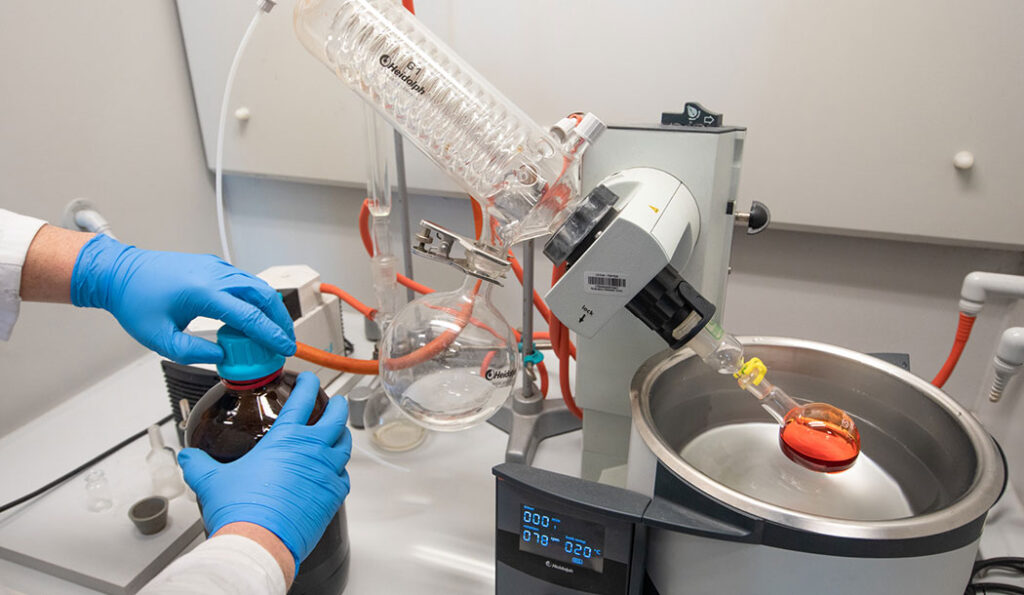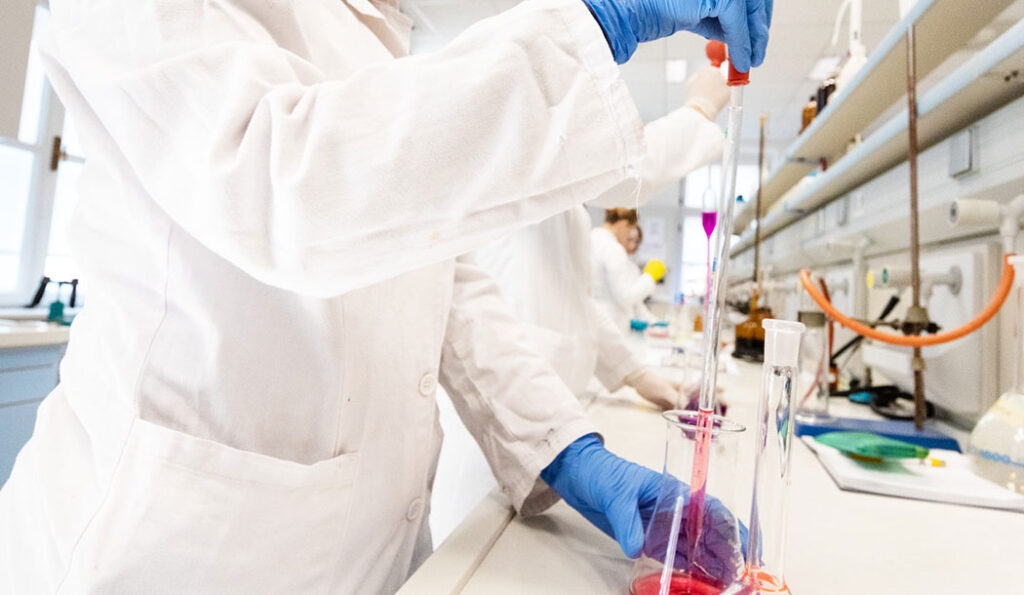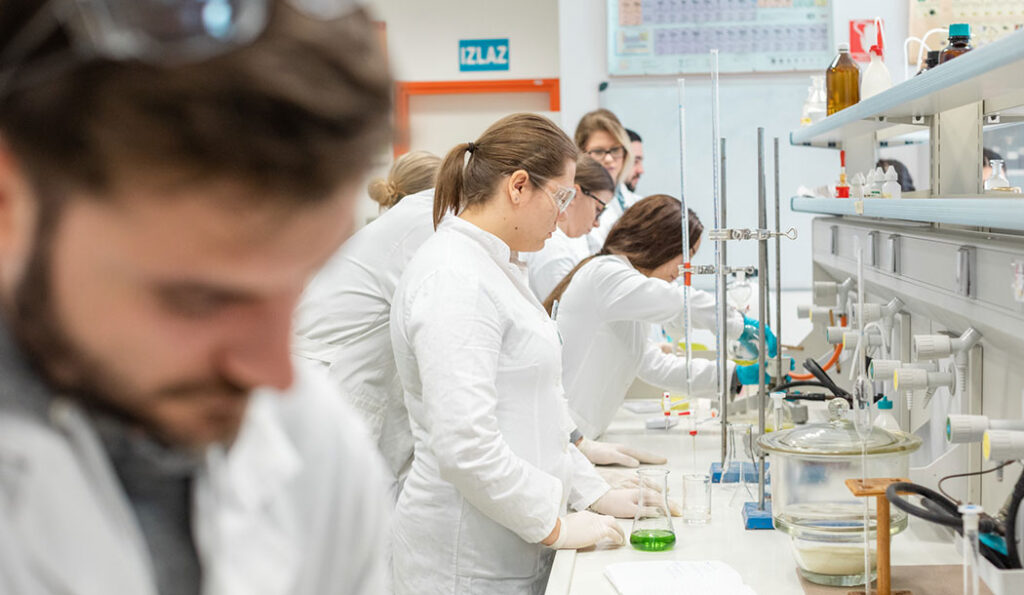Graduate University Study Programme Chemistry; Specialization in: Research
Duration of study: two years, four semesters
Total: 120 ECTS credits
Academic title: University Master of Science in Chemistry (univ. mag. chem.)
Students who complete the study programme Chemistry research major may fulfil the requirements prescribed in Article 105 of the Act on Education in Primary and Secondary Schools (OG 152/14), but must subsequently complete Pedagogical-Psychological-Didactic-Methodological Education as part of a lifelong learning programme at an authorized higher education institution.
Upon completion of the study programme, the master will be qualified for: work in a research laboratory and on research projects, employment in public and private institutions in specific jobs (industry, institutes, departments, hospitals and health institutions, public information media, etc.), employment in higher education or/and scientific projects as assistants or research assistants, with the obligation to continue education at postgraduate (doctoral) studies, enrolment in postgraduate (doctoral) studies in the field of natural, biomedical, biotechnical or interdisciplinary sciences.
The conditions for enrolment in the study programme are in accordance with the vertical and horizontal mobility of the higher education system of the Republic of Croatia and the European Higher Education Area, the study programme enables the continuation of education for persons who have:
- a) completed the undergraduate study of chemistry at the Department of Chemistry of the Josip Juraj Strossmayer University of Osijek;
- b) have completed an undergraduate university study in chemistry at another university in the Republic of Croatia with a teaching load of at least 180 ECTS (at least 110 ECTS from basic chemistry subjects) with the possibility of determining the obligation to take differential exams;
- c) have completed an undergraduate university study in chemistry at universities in countries that are signatories to the Bologna Declaration with a teaching load of at least 180 ECTS (at least 110 ECTS from basic chemistry subjects) with the possibility of determining the obligation to take differential exams;
- d) and have an undergraduate grade point average of at least 3.5 or an equivalent grade point average as determined by the Student Applications Committee and/or the ECTS coordinator of the Department of Chemistry. Applicants with a lower grade point average may apply for enrolment with a request and recommendations from two teachers of the Department of Chemistry, and their requests are considered and resolved by the Student Applications Committee.
Participants are selected through a public competition according to the set conditions. In the event that the number of candidates applying exceeds the enrolment quota, a selection procedure will be conducted during which the best candidates will be selected in a transparent manner. The procedure for selecting applicants for enrolment is determined in a manner that guarantees equality of all applicants regardless of race, skin colour, sex, language, religion, political or other belief, national or social origin, property, birth, social status, disability, sexual orientation and age.




Learning outcomes at the level of the study programme
– to critically assess new and unknown situations in a broader (or interdisciplinary) environment in chemistry and related sciences and propose solutions, always taking into account the ethical responsibility that arises from the application of knowledge and judgment.
– to assess and verify personal capabilities for participation in teams engaged in research in the fields of natural, biotechnical, biomedical and educational sciences.
– to evaluate the implementation of chemical research (from the design of an experiment, its implementation, to quantitative data processing and drawing conclusions).
– to contribute to scientific literacy through research work and the use of professional and scientific literature.
– to manage appropriate equipment and devices in chemical laboratories.
– to present and argue the results and conclusions that arise from them.
– to evaluate different methods and skills for independent work and taking responsibility for one’s professional development and advancement.
– to evaluate one’s programmes for improving personal professional development.
